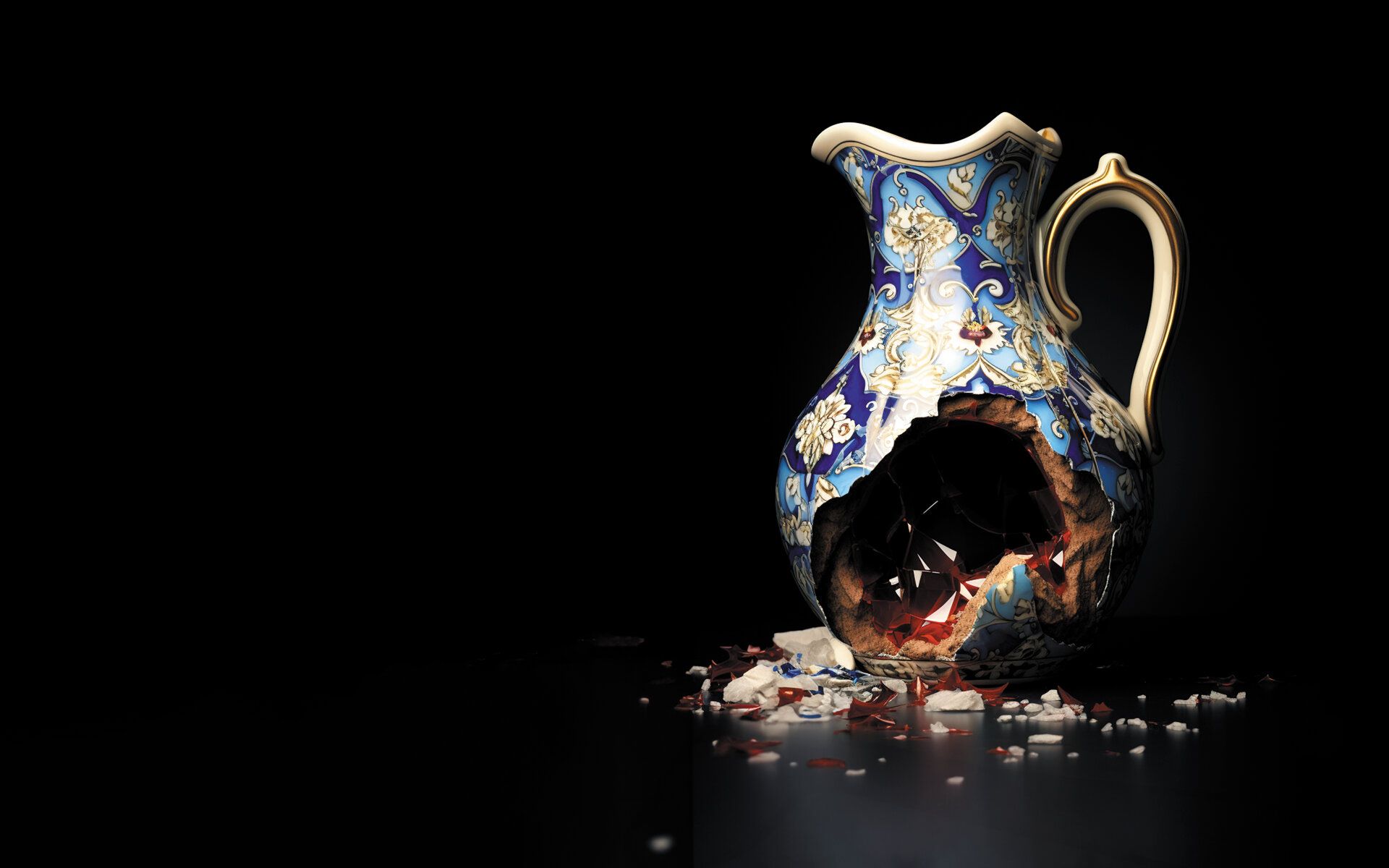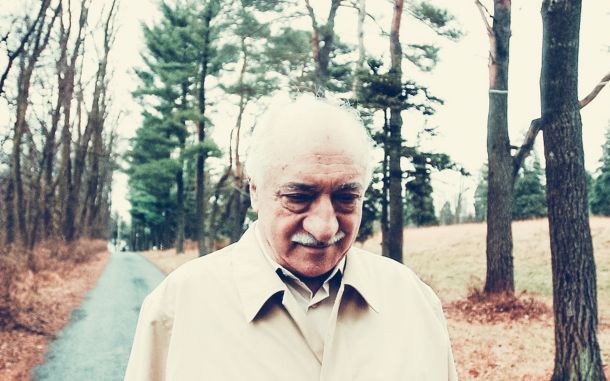Yesterday-Today-Tomorrow

In This Article
-
At one time this blessed world bore little resemblance to the one we know today. The mercy of the heavens, the splendor of the angels, and the compassion of mothers could be heard in every sound and breath, and every district would emerge like a bay of trust.
-
Immorality was never so publicly displayed to embarrass the face of the nation. Evil found no prolonged opportunity to endure. Shamelessness absolutely could not spread, and even if the aptitude for sin and rebellion flexed its muscles, it did so secretly.
-
In contrast to places and times when might was right, rule of law was miserable and arbitrary, in this blessed society, law was essential, justice was predominant, people assisted one another, and power consistently rested in the hands of the “right.”
At one time this blessed world bore little resemblance to the one we know today. Its colors, atmosphere, and people were steeped in a unique spiritual essence. With an unyielding determination to safeguard their identity, its inhabitants cherished the values inherited from the past, celebrated timeless traditions, and reveled in the rich tapestry of material-spiritual beauties that derived from this unique combination. The downtowns, markets, and streets were each just like the sacred space of a sanctuary, and places of worship were just like a projection of the Ka’ba. With the breadth of their feelings, thoughts, and hearts, people all over this world would encounter spirits of remarkable depth, refinement, kindness, and contentment, wherever they ventured. It felt as though their warm reception had washed over them, and they would forever whisper words of gratitude for the privilege of residing in such a welcoming country. The mercy of the heavens, the splendor of the angels, and the compassion of mothers could be heard in every sound and breath, and every district would emerge like a bay of trust. In this place, people would occasionally turn earnest when extolling the Truth, and at other moments, their heartfelt gratitude would erupt in joyful cheers, yet they always carried a smile in their thoughts and words. Wherever these cheerful faces journeyed, it seemed as though a delightful morning breeze was gently caressing the surroundings. Hearts burdened by life’s pressures and spirits weighed down by some momentary setbacks would find solace in this magical atmosphere akin to seeking refuge in the shade of heaven. They would cast off their worries and, as if they had taken a spiritual bath, they would emerge refreshed and serene.
Schools perpetually beamed with the radiance of knowledge and wisdom. Sanctuaries, each a sacred space of light and splendor, would illuminate their surroundings throughout the day just like a spiritual guide or teacher. They would gently share celestial words with those seeking refuge, gracing them with heavenly guidance. Pulpits would become upsurge stations of otherworldly wisdom and spread rays of their sacred enlightenment into hearts. Our houses would transform into the gateway to these schools, sanctuaries and pulpits, resound with spirit and meaning as they celebrated the gentle breezes and lights radiating from these places. Streets and roads, enriched by individuals embodying faith and enlightenment, resembled showcases of divine blessings from these schools and sanctuaries, as if they were transforming every location into a sacred space for both worship and learning.
People of that time refrained from disparaging themselves with lies, slander, or conspiracies. Even if occasionally the pitiful murmur of a few wretches – ignorant of human values and showing no respect for people or God – or the clamor of oppression were audible, the predominant disposition of the vast majority of society consistently remained distant to such lowly actions which could be attributed only to those of lesser character. Immorality was never so publicly displayed to embarrass the face of the nation. Evil found no prolonged opportunity to endure. Shamelessness absolutely could not spread, and even if the aptitude for sin and rebellion flexed its muscles, it did so secretly. Efforts in such a rebellious direction would not succeed. If they did, they couldn’t persist, they would perish shortly after birth, leaving behind an enduring sense of regret. People of that time often sought repentance regardless of whether or not they had sinned, and hurried to purify themselves under the fountains of sincere penitence. They constantly strengthened their determination through prayer and pleading, striving to draw nearer to God.
In that society, everyone regarded each other with trust, took great care to maintain trustworthiness, and no one felt unsafe from others. Even if on the rare occasion they were deceived, they never deceived others – it never even crossed their minds. They considered deceiving or cheating someone as the greatest disrespect to the reality of being human, and they protected their reputation as they did their honor. The voice and influence of brute force asserting “I said so” were seldom heard among them. In the event of sporadic capricious acts or transgressions, they would solve them without creating a commotion, they would give concessions enough to silence the one who was causing anarchy.
In contrast to places and times when might was right, rule of law was miserable and arbitrary, in this blessed society, law was essential, justice was predominant, people assisted one another, and power consistently rested in the hands of the “right.” Individuals of the society were like the limbs of one body. They were respectful towards one another and valued the importance and necessity of every individual. Sharing was second nature to them. Diverse ideas and opinions were seen as enriching, and they held a broad respect for different viewpoints. No one labeled another a bigot based on belief or disbelief. Apart from a few isolated instances, there was no fear of being assaulted or crushed upon. Their hearts were guided by commitment agreements, trust, compassion, and mercy. Lies were considered something a believer would never lower himself or herself for, and even the mentioning of the word “disloyal” was cause for embarrassment. Oppression and transgression were always met with reprehension, and killing was considered to be monstrous.
At that time, embezzlement, which is now a significant issue, was unheard of. Speculation was a word that could only be found in some foreign dictionaries. Appropriating things unlawfully was considered banditry. Getting involved in this kind of vice was a cause of shame not only for the perpetrator, but also for their family, tribe, and village or town where they lived. Their faithful sentiments and thoughts ran as profound as the marrow within their bones, constituting the essence and vitality of their being. Virtue was considered an indispensable high truth and living faithfully a necessity of being human. Everyone lived constantly with the ideas of “faith,” “knowledge,” and “wisdom” and frequently exuded love and reverence for God. No one transgressed the boundaries of others. In cases of accidental transgressions, they acted in accordance with the principles of believers, refraining from responding to a wrong with another wrong. If mistreated, they upheld their commitment without any anticipation of reciprocation. They would counter crude behavior with courtesy aiming to teach through example; thus, ensuring evil remained unidirectional, reducing by half the potential negative consequences that might have arisen.
During the last few centuries, as a society we have become, if not fully so, very remote from these high human values. Our collective thought and character have been marred by a succession of ruptures. The beliefs and thoughts we used to identify ourselves with have started to lose color, and some of us have even found ourselves in degradation. The smiling and pleasant faces of the past have been replaced with frowning, complaining, sullen faces, often darkening with hostility and hatred and reddening with rage. It seems as if the spirited, joyful, warm, welcoming, and refined individuals of our society have vanished, replaced by extremely rigid, rough, and fragile entities that resemble humans but whose essence and spirit have become charred.
However, this situation hasn’t always applied universally. Alongside those experiencing internal decay, detachment, or identity denial, there were also many individuals whose characters had not degenerated, who remained pure and uncontaminated, tied to the roots of their spiritual essence. They eagerly anticipated a guiding light, a call to prayer, and a renewal of their faith with a sincere, contemporary voice. With a sense of temperateness that had exuded from their roots of spiritual essence, imbued with natural goodness, respect and forgiveness towards all, they patiently awaited an opportune moment to express themselves. Actually, for some time, these people occasionally congregated, driven by the noble values of their heritage, to explore ways to foster societal harmony. Through these endeavors, they beckoned for God’s extra blessings, and, whether consciously or not, they steadily advanced towards a revival, as if they had heard the trumpet of Israfil. These pure spirits, which I will compare to the currents of fresh water in the salty seas, exuded an unwavering sincerity, profound resignation, and submission to God that mirrored His presence, and consistently evoked a captivating impact on people.
They were not just in harmony with people, but also with the heavens and earth and all of creation. They were at peace with everyone – they were friends to friendship and enemies to hostility and hatred. They were open to sharing and closed to things like self-interest. They walked towards the horizon of genuine humanity, eyes sparkling with hope and their hearts brimming with the excitement of love, all the while avoiding entanglement in the surrounding chaos. On the one hand, their beliefs in the next life and eternity were sincere, and on the other hand, in some respects, they were fully aware of the worldly affairs. They adeptly analyzed events, considering both this life and the next in their interpretations. They consistently aspired to align their lives with the vibrant hues and intricate patterns of their hearts, fueled by a determination akin to that of the prophets, as they journeyed towards eternity. In their eyes, pleasures and joy that come their way without their asking for them are nothing but rewards given in advance to the weak, and the praises they received were tokens of celestial hospitality extended as a courtesy by heaven.
Yet, these experiences were reserved for only a select few. For them to be fully adopted by a majority, at least accepted and lived to a certain extent, it is evident that people must possess a love for truth and exploring. They should analyze and synthesize, and engage in continuous brainstorming. Once these principles are put into action, minds will be enriched with knowledge, judgment will evolve into a wellspring of wisdom, and softened hearts will pulsate with love. Only then will the uniqueness of truly being human emerge with full clarity.
In this respect, it appears that attaining this level and reaching this horizon is as difficult as it is important. Who knows what hardships those who preceded us endured in order to reach the summits they marked with their flags. What abysses they encountered, what dreams they pursued amidst weariness, what efforts they made, what perspiration they shed, what trials they weathered, and what tormenting events they endured. How many times they faced death only to rise anew, and how many times they sighed in moments of helplessness?
Indeed, maintaining one's true self is a formidable task; self-discovery and the pursuit of reaching the standards set for humanity are challenges that surpass the ordinary difficulties of life. Such a task requires faith before anything else, an effort to investigate, suffering, and love. It requires to take advantage of opportunities, especially when hopes of survival coexist with risks of annihilation.
To date many people have succeeded in this harder-than-hard task. These heroes and their achievements can be considered as points of reference for probable future successes. Now we find solace in dreams of an illuminated future, envisioning eras enlightened and woven by love, mercy, compassion, understanding, and respect for everyone’s position. At every daybreak we eagerly await the propitious moment when the cavalry of dawn will appear.









